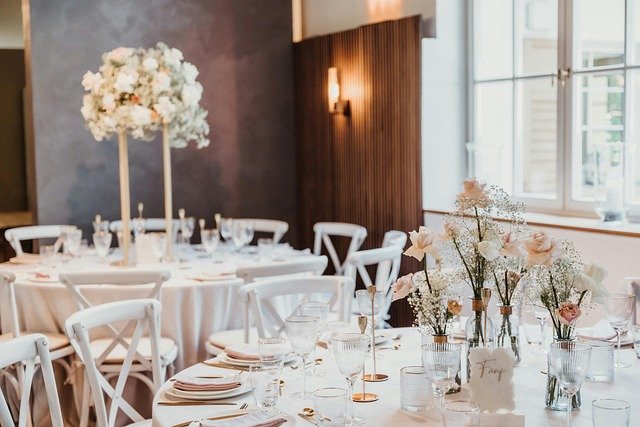How to Choose the Ideal Banquet Hall for Your Event
Selecting the right banquet hall can make or break your celebration. This practical guide walks you through venue selection, budgeting, must-have amenities for weddings and other events, and planning tips to ensure a smooth, memorable gathering. Learn how to evaluate capacity, catering, accessibility, and pricing so you can confidently book the perfect space for your wedding reception, corporate event, or milestone party.

How to Plan Your Party at a Banquet Hall
Securing the right venue is one of the first and most important steps in event planning. Popular banquet halls often book out months in advance, so aim to reserve your date 6–12 months ahead, especially for weekend dates or peak wedding season. Start with a clear checklist that includes guest count, seating layout, catering needs, audio-visual requirements, and any special accommodations for guests with limited mobility.
Many halls provide on-site coordinators or curated lists of preferred vendors; these resources can dramatically reduce stress and simplify logistics. Confirm parking availability, evaluate drop-off and loading zones for vendors, and check nearby lodging options if you expect out-of-town guests. Accessibility features — ramps, elevators, and accessible restrooms — should be verified to ensure comfort for elderly or disabled attendees.
Key Features for Wedding Reception Venues
Weddings have distinct needs that venues should be able to accommodate. Look for private spaces such as bridal suites or groom’s rooms for getting ready and staging photos. If you want both ceremony and reception in one place, ask whether the hall can easily transition between formats and whether there are separate areas for cocktail hour and dining.
Practical amenities are as important as aesthetics. Ensure the venue has reliable climate control, sufficient electrical outlets for bands or DJs, and space for a dance floor. Natural light and appealing architectural elements can reduce decor costs and enhance photos, so tour the space at the same time of day your event will occur to evaluate lighting. Also, request information about acoustics — some rooms may require additional sound equipment or draping to manage echo.
Understanding Banquet Hall Pricing and Packages
Banquet hall rates vary depending on location, the day of the week, time of year, and what’s included. Below is a typical breakdown of package types and what they often cover.
| Package Type | Typical Inclusions | Average Cost Range |
|---|---|---|
| Basic Rental | Space only | $1,000 - $3,000 |
| Standard Package | Space, tables, chairs, basic linens | $2,500 - $5,000 |
| Premium Package | All standard items plus catering, decoration | $5,000 - $15,000 |
| Luxury Package | All-inclusive with premium services | $15,000+ |
Prices, rates, or cost estimates mentioned in this article are based on the latest available information but may change over time. Independent research is advised before making financial decisions.
When comparing quotes, ask what taxes, service charges, or gratuities are added to the base price. Confirm whether the rental fee covers setup and teardown time or if those windows are billed separately. If food and beverage are included, review menu options, minimum guest counts, corkage fees, and whether the kitchen can accommodate special diets.
Event Planning Tips for Banquet Hall Success
Read the contract thoroughly and clarify any ambiguous language before signing. Key items to confirm include cancellation and refund policies, overtime charges, and liability insurance requirements for outside vendors. Know the venue’s rules about decorations (open flames, confetti, wall hanging restrictions) and whether you may bring your own florist, cake designer, or DJ.
Create a detailed production timeline that covers arrival times for vendors, rehearsal windows, meal service schedule, speeches, and breakdown. Communicate this timeline to the venue coordinator and all vendors at least a week in advance. For live entertainment or elaborate AV setups, provide the hall with a technical rider outlining power needs, stage dimensions, and load-in procedures so any special requirements can be addressed early.
If you’re on a tight budget, prioritize spending on elements that guests will notice most — quality food, comfortable seating, and a smooth flow of events. Conversely, if the venue itself offers distinctive architecture or scenic views, you can save by keeping decor understated and letting the space speak for itself.
Final Considerations
A professional banquet hall should balance functionality with style and offer clear communication throughout the planning process. Visit potential venues more than once, preferably during an event, to get a feel for how the space operates. Ask for references or testimonials and request a written inventory of what’s included with your rental.
By assessing capacity, accessibility, amenities, and pricing, and by maintaining open lines of communication with venue staff, you’ll be well positioned to choose a banquet hall that supports your vision and delivers a seamless celebration. Careful planning and clear contracts are the best tools to ensure your special event unfolds exactly as you imagined.




